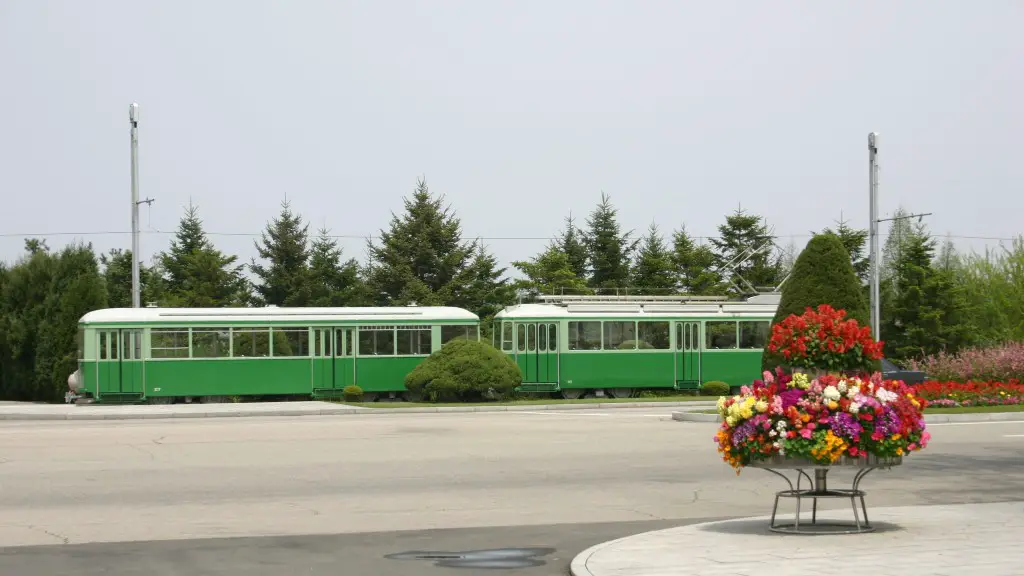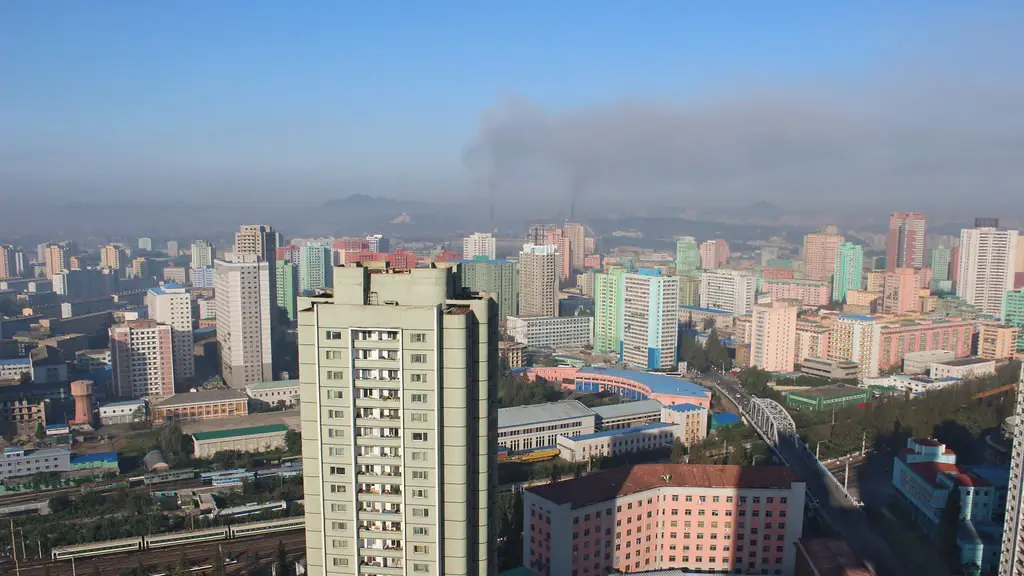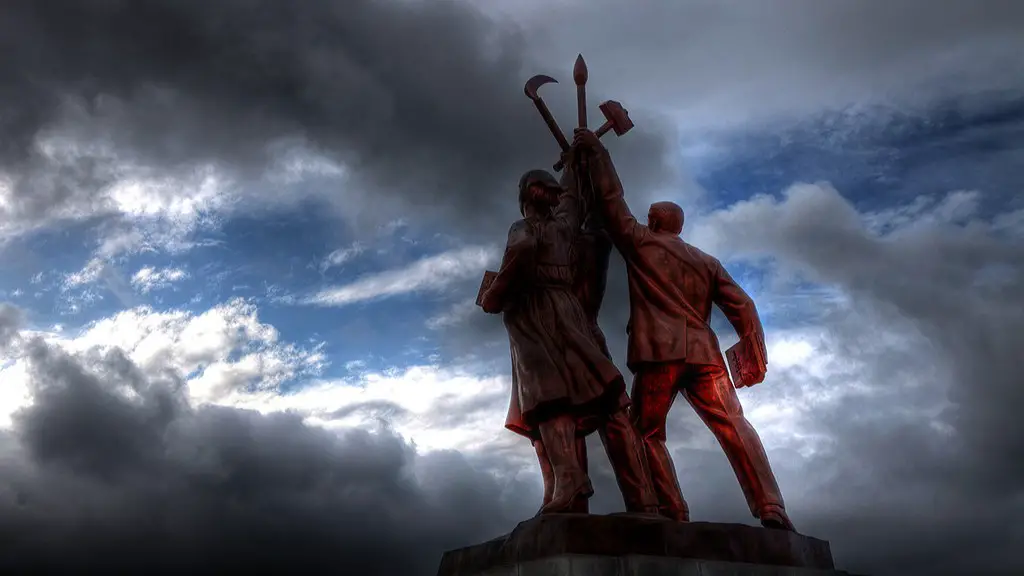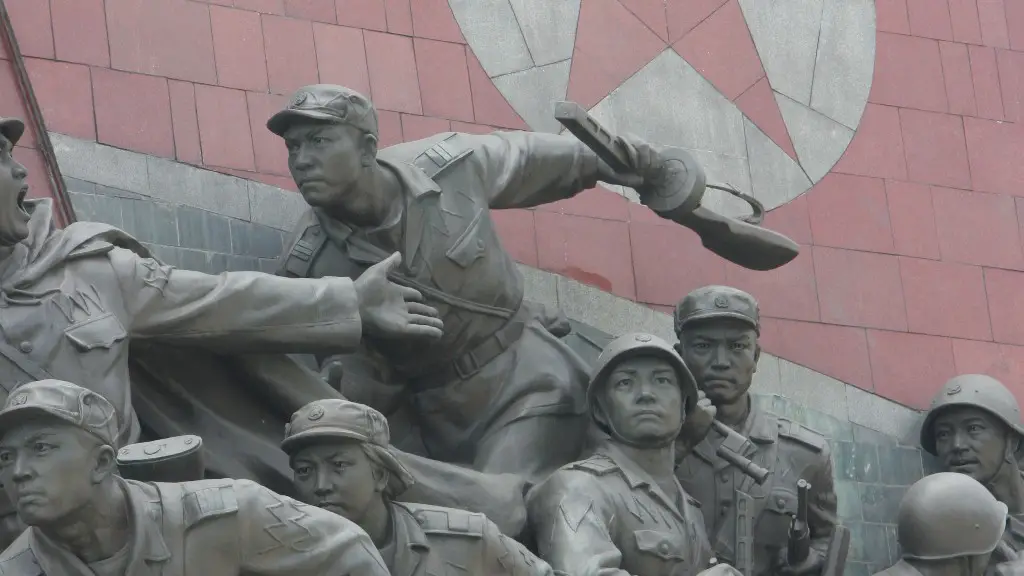Internal Political System
One of the main causes of North Korea’s violence is the singular internal political system of the country. The hermetic nature of North Korea’s leadership perpetuates a culture of secrecy and fear of public knowledge, making it difficult for members of the public to express their opinions. This internal structure serves to marginalize certain groups and consolidate power in the hands of a few insiders. Hypothesized as a double-edged sword, the protection of North Korea’s political system gives the ruling elite a high degree of immunity and ultimately removes any competing positions that could advocate for a less oppressive form of governance.
North Korea is a highly oppressive state and has been accused of committing gross human rights abuses. The North Korean government has made numerous attempts to control its population by punishing any perceived dissidents. These attempts have included arbitrary arrest by the military and secret police, extrajudicial executions, false imprisonment, and torture. Such practices ring true for even the slightest dissent and are systematically used to keep citizens in line. This entrenched violence is further enabled by the government’s refusal to recognize the rights of its citizens.
An international effort to curb North Korea’s violence has been largely unsuccessful, in part due to the immunity granted to the ruling party and to the fact that the country is not a signatory to the International Covenant on Civil and Political Rights. The United Nations has urged North Korea to halt human rights abuses and allow access to monitor the situation but these requests have been consistently denied by the North Korean government.
Economic Factors
The economic situation in North Korea further contributes to the violence of the state. The North Korean economy is estimated to be in a state of near-collapse due to a number of factors. North Korea’s economy is largely isolated from the international community and is heavily reliant on foreign aid and trade with China. Economic sanctions imposed by the international community have further exacerbated the situation, leading to a dramatic decline in the country’s GDP and increased poverty.
The economic crisis has had a drastic effect on the everyday lives of the North Korean people. Essential goods such as food and medical supplies are in limited supply, leading to widespread hunger and malnutrition. Access to healthcare is severely limited, leading to higher infant mortality rates and lower levels of life expectancy. The lack of basic necessities has resulted in a number of human rights violations, such as forced labor, sexual violence, and the use of torture.
The economic situation has had a devastating effect on the North Korean population and is considered responsible for a number of human rights violations. In addition to its potential role in violence and human rights abuses, the economic crisis has exacerbated the underlying tension in North Korea. The overwhelming poverty of the population has led to a rise in crime, desperation, and mistrust, making North Korea increasingly volatile.
International Relations
The relationship between North Korea and other countries further contributes to the violence in the country. North Korea has a long history of hostility towards the international community, and its relations with other countries have been increasingly strained in recent years. The lack of diplomatic ties between North Korea and other states has made international intervention and response to abuses within the country difficult.
The country’s isolation and hostile attitude towards the international community has further increased, making resolution of the situation difficult. In addition, North Korea has been accused of possessing nuclear weapons, which has further contributed to international tensions and led to increased sanctions. North Korea has also been accused of sponsoring acts of terrorism, leading to the deployment of international sanctions.
North Korea has been a member of the United Nations since 1991, but its international relations have mainly been confrontational. The country’s attitude towards the outside world has been largely hostile, making international intervention and response to internal situations difficult. This has further perpetuated the violence and human rights abuses within the country as a result.
Cultural Roots
The roots of North Korea’s violence can be traced back to its culture and history. North Korea has a long history of militarism and aggression, which was instilled in its people from a young age. This militant attitude serves to promote a culture of violence and foster a community of citizens who are willing to use violence to achieve their goals. This type of aggression is further reinforced by the government’s attempts to control the population, making it difficult to challenge the state’s narrative.
This culture of violence can also be attributed to North Korea’s authoritarian ideology, which has been largely accepted by the population. This system of governance serves to silence any dissent or opposition, making it difficult to challenge the ruling party’s ideology or policies. The North Korean government also promotes a culture of hero worship, further perpetuating its violent tendencies.
North Korea’s historical context further contributes to its violent nature. The country has a long history of conflict and war which has impacted its civilian population. During the Cold War, North Korea was the target of a number of military offensives, resulting in millions of civilian casualties. This history of violence is still deeply ingrained in the minds of the North Korean people, making it difficult to challenge the existing system of governance.
Government Control
The North Korean government plays a major role in the country’s violence. The ruling party of North Korea has direct control over virtually all aspects of the country, making it difficult for citizens to express their opinions or challenge the government’s narrative. This control is further reinforced by a number of repressive laws and a highly militarized society, allowing the government to punish those who challenge their rule.
The government also uses various propaganda techniques to control the population and maintain their power. This includes the use of fear-mongering, censorship, and the suppression of information in order to control the narrative within the country. The government has also been known to engage in property destruction and arbitrary detention in order to suppress any opposition to their rule.
The government’s suppression of the population has further contributed to the violence in the country. Without any way of expressing dissent, the population is less likely to challenge the government’s actions. This lack of opposition further enables the government to act with impunity and silence any perceived dissidence.
North Korean mindset
The North Korean mindset is another factor to consider when analyzing North Korea’s violence. While North Koreans are generally peaceful and hospitable, the government’s attitude towards its citizens has been largely hostile, leading to a culture of mistrust and paranoia. This hostile environment can lead to feelings of helplessness and frustration amongst the population, and ultimately result in violent acts.
The North Korean government has also been known to engage in fear-mongering and propaganda in order to further control the population. This has led to a deep distrust of the outside world and a persecution of perceived dissidents. This deep-seated fear of the outside world further contributes to the violence in North Korea, as citizens are more likely to act out in fear and desperation.
Additionally, the authoritarian mindset of the North Korean government has led to a pervasive cult of personality. This cult of personality serves to further propagate fear and distrust among the population, making it difficult for citizens to challenge the ruling party’s ideology or policies. This fear and mistrust further adds to the country’s already volatile atmosphere.
Conclusion
North Korea’s violence is the result of a combination of factors, including an oppressive internal political system, an increasingly volatile economic situation, hostile international relationships, and a deeply engrained culture of violence. These factors have served to exacerbate the situation in North Korea and make it increasingly difficult for the international community to intervene. The North Korean government also plays a major role in the country’s violence, making use of oppressive tactics to control the population and ensure compliance with their rule. The North Korean mindset is also a contributing factor and serves to further perpetuate fear and mistrust throughout the population. In order to address North Korea’s violence, it is essential to take into account all of these factors and work towards a peaceful resolution.




